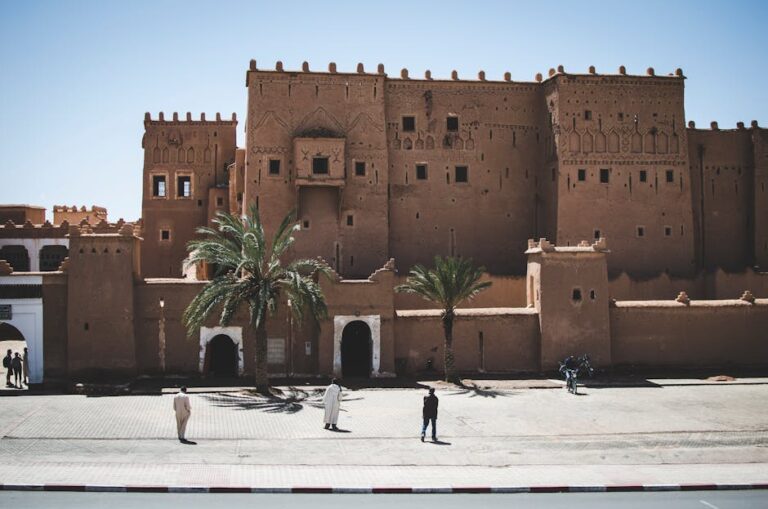You wanna talk about the international chamber of commerce? Fine. Pull up a chair. Because honestly, most folks, they hear that name and their eyes glaze over faster than a politician at a town hall meeting. They think it’s some dusty old club where rich people sip expensive tea and nod at each other. They ain’t entirely wrong, mind you. But there’s more to it than that. A whole lot more, if you’re actually trying to move goods or services across a border without losing your shirt.
My years in this game, watching the wheels turn, the gears grind, yeah, you see things. You see the sheer amount of paperwork, the hoops, the regulations that change faster than the weather in a Sydney summer. And then you got the international chamber of commerce, sitting right there in the middle of it all, trying to make sense of the chaos. Or at least, they’re supposed to.
I always tell the young pups, the ones fresh out of college thinking they’re gonna change the world with a fancy PowerPoint deck: international trade ain’t pretty. It’s messy. It’s got tariffs and quotas and customs declarations that make your head spin. And that’s before you even get to the different legal systems. Good luck with that. They’re trying to set standards, see? Like how you define delivery terms, who pays for what, when ownership actually transfers. You think that’s simple? Try explaining it to someone whose last language class was in high school. It’s all about risk, plain and simple. Who takes the hit if something goes sideways? That’s what they spend their time on, mostly.
Maersk
You ever shipped anything, I mean anything substantial, across an ocean? You’ve probably dealt with a company like Maersk. Those big blue containers, stacked higher than my ego on a good day, they go everywhere. What do you think happens when a Maersk vessel sails into a port in, say, Rotterdam, then offloads stuff bound for, I don’t know, some factory in Poland? There are contracts flying around, mountains of them. Sales agreements, bills of lading, insurance papers. All of it. And believe me, every single one of those documents, every single clause, has been influenced, directly or indirectly, by the work put in by the international chamber of commerce. Things like Incoterms, right? You probably heard about those. DDP, FOB, CIF – sounds like alphabet soup, I know. But those little three-letter codes save billions in disputes, time, and arguments. They standardize things. You gotta have that. Can you imagine the sheer bedlam if everyone just made up their own rules every time a widget crossed a border? The whole global economy would just seize up. Dead in the water, like a ship without a rudder.
What happens when things go wrong?
See, you think everyone plays fair, right? Bless your heart. Business is business, and sometimes, well, things go south. A shipment gets damaged. The payment doesn’t come through. Some shady outfit in a far-flung corner of the globe decides they don’t like the color of the crates. What then? You can’t just call the local sheriff. That’s where the ICC, the international chamber of commerce, steps in, or at least provides the framework for resolution. They’ve got their arbitration rules. A lot of contracts, especially big international ones, will specify that any disputes go through ICC arbitration. It saves a lot of headaches, avoids dragging things through foreign courts where you don’t speak the language and they don’t care about your time. It’s about having a neutral party, someone who knows the rules of engagement. Otherwise, you’re just screaming into the wind.
Cargill
Think about food. The stuff you eat, the grain, the beef, all of it. A company like Cargill, they operate on a scale that makes your head spin. They source raw materials from one end of the Earth, process it somewhere else, and sell it everywhere. Picture a trainload of soybeans moving through the Midwest, then onto a ship headed for China. Or a massive shipment of cocoa beans from Ghana landing in some European port. How do you manage that? The sheer scale of transactions, the payments, the quality checks. It’s mind-boggling.
Are those contracts simple? Not by a long shot. They factor in commodity prices, currency fluctuations, even weather patterns. The international chamber of commerce, through its various commissions, works to iron out best practices for commodity trade, for trade finance instruments. Letters of credit, for instance. Those things are what makes the world go round for a lot of these big players. You don’t just wire a billion bucks to some outfit you’ve never met. You need guarantees. And the ICC has been instrumental in codifying the Uniform Customs and Practice for Documentary Credits (UCP 600) for decades. Without that, who knows how long it would take for your morning toast to actually get to your plate. If it ever did.
Trade finance, a dull but necessary evil
Most people don’t think about trade finance. They think about PayPal or their credit card. But when you’re talking about millions, hundreds of millions, even billions changing hands across borders for physical goods, that ain’t gonna cut it. Banks need a way to reduce risk. Exporters need to get paid. Importers need to know their goods are actually coming. This is where those standardized rules on things like letters of credit, bank guarantees, and collections come in handy. And who sets a lot of these global standards? Yeah, the international chamber of commerce. It’s not flashy, like I said. But it keeps the money flowing, which is pretty important, wouldn’t you say?
HSBC
Speaking of money, banks are central to this whole charade. HSBC, for example, is a behemoth in trade finance. They’re facilitating deals every single minute of every single day, all over the world. They’re the ones actually processing those letters of credit, handling the foreign exchange, making sure the payments clear. It’s a huge, complex business. The rules, the forms, the standards they use, often come straight out of work done by the international chamber of commerce. It gives everyone a common language. A shared understanding of what constitutes a valid document, what an acceptable discrepancy looks like.
Can a small business actually use this stuff? Yeah, they can. Most smaller outfits use their bank for international transactions. And guess what? That bank, even if it’s a local branch in some sleepy town, is operating under the same set of rules set by, you guessed it, the international chamber of commerce. So when you hear about your bank issuing a letter of credit for your small export business, know that it’s all built on a foundation laid by these folks, years and years of work to make it all less of a headache. Mostly. What’s a letter of credit, anyway? It’s basically a promise from a bank that an importer’s payment to an exporter will be received on time and for the correct amount. If the importer can’t pay, the bank will. Simple. Or not.
Siemens
Consider a company like Siemens. They make everything from massive power turbines to medical imaging equipment. They’re building infrastructure projects in countries all over the globe. Think about a giant wind farm being built somewhere in rural Kazakhstan. That’s Siemens. You’re talking about shipping incredibly large, complex pieces of machinery, sometimes in stages, over vast distances, dealing with local regulations, customs, permits, local labor laws. And payments. Lots and lots of payments.
The contracts involved with these kinds of projects? They’re multi-year, multi-billion dollar affairs. And they all rely on a certain level of predictability and legal clarity that the international chamber of commerce tries to promote. They’ve got guidelines for international contracts, for joint ventures, for anti-corruption practices that these huge corporations adhere to. It’s not a law, not exactly. It’s more like a universally accepted handbook. A guide to not screw things up, if you’re trying to build something big somewhere you’ve never been before. Do they always follow them? That’s a whole different question, innit? Sometimes, you gotta cut a few corners to get things moving. But the playbook is there, nonetheless.
Disputes and avoiding the courtroom circus
Ever been involved in a long, drawn-out legal fight? I have. Trust me, it’s not fun. It drains your time, your money, your sanity. These big firms, like Siemens, they absolutely hate it. They’ll do anything to avoid a court battle in some foreign land where the rules are, shall we say, “flexible.” That’s why their contracts almost always have clauses pointing to things like ICC arbitration. It’s faster, it’s confidential, and you get experts who actually understand the complexities of, say, international construction law, not just some judge who’s usually dealing with parking tickets. That’s the real value. Staying out of the courts. What are the main benefits of ICC arbitration over court litigation? Speed, neutrality, and expertise. That’s the short of it.
Alibaba
Now, the world’s changed, right? You’ve got these massive e-commerce platforms like Alibaba that have basically opened up global trade to small and medium-sized businesses that never stood a chance before. You can order a thousand widgets from a factory in China, pay for them online, and have them shipped to your garage in, I don’t know, rural Wales. That seems simple, right?
Well, under the hood, it’s still the same old international trade. Payment processing, shipping regulations, customs duties. Alibaba might simplify the front end, but they’re still reliant on those underlying rules and frameworks. The cross-border payments, the dispute resolution, even the terms of sale for goods listed on their platform – a lot of the best practices and standards that make this global bazaar function trace back to the work done by bodies like the international chamber of commerce. They’re constantly looking at how these old rules apply to new tech, to digital trade, to things that weren’t even a glimmer in anyone’s eye a few decades back. It’s a never-ending game of catch-up. Is trade finance still relevant for e-commerce? Absolutely. The scale might be different for individual transactions, but the total volume requires the same underlying financial structures.
The digital frontier and the old guard
They’re trying to figure out things like electronic bills of lading. Sounds exciting, doesn’t it? But it’s actually pretty important. If you can digitize all that paperwork, speed up transactions, reduce fraud, that’s real money saved. The international chamber of commerce is working on that, pushing for digital trade standards. It’s slow. Very slow. You’re talking about getting banks, customs agencies, shipping companies, all of them, to agree on a universal digital format. Good luck with that. It’s like herding cats in a fog. But they keep at it. Because if they don’t, then everyone just invents their own system, and then we’re back to the wild west.
DP World
Last but not least, let’s talk about ports. DP World, for instance, operates ports and terminals all over the world. From Dubai to Vancouver, they’re handling the physical movement of goods on a colossal scale. Those containers I mentioned earlier? They move through these ports. What goes on there? Customs inspections, security checks, cargo manifests that have to be accurate down to the last nut and bolt. You think that’s not influenced by international standards? Think again.
The way goods are classified, the security protocols, the paperwork required for goods to enter or leave a country – a lot of that is harmonized thanks to international agreements and frameworks that the international chamber of commerce has a hand in shaping. They advocate for simpler trade procedures, for less bureaucracy at the border. Because every minute a ship is held up, every container stuck in customs, costs someone a lot of money. It’s all about keeping things moving. Keeping the supply chains, as they call them, oiled and greased. Who decides what rules apply at ports? Mostly national governments, but they often base their rules on international conventions and recommendations, many influenced by groups like the ICC.
What do I really think? The international chamber of commerce, it’s not perfect. Far from it. It’s a big, slow-moving beast of an organization, full of committees and sub-committees and folks who love a good meeting. But you know what? Without them, or something like them, the global trading system would be a far bigger mess than it already is. They provide a common language, a set of guidelines that everyone, from the smallest exporter to the biggest multinational, can, mostly, agree to. That’s not nothing. It’s actually quite a lot, if you ask me. Keeps the wheels turning, even if they sometimes creak a bit. And that’s really all you can ask for in this crazy world of international business. It’s about making sure your widgets actually make it to where they’re supposed to go, without getting lost in the paperwork. Or worse, getting stuck in a legal quagmire. No one wants that.












